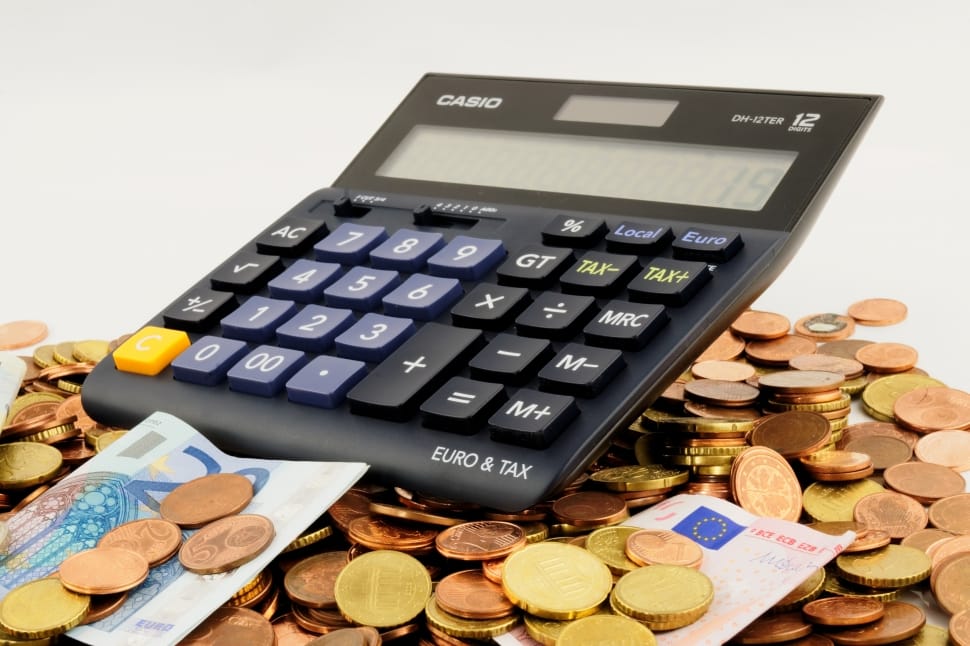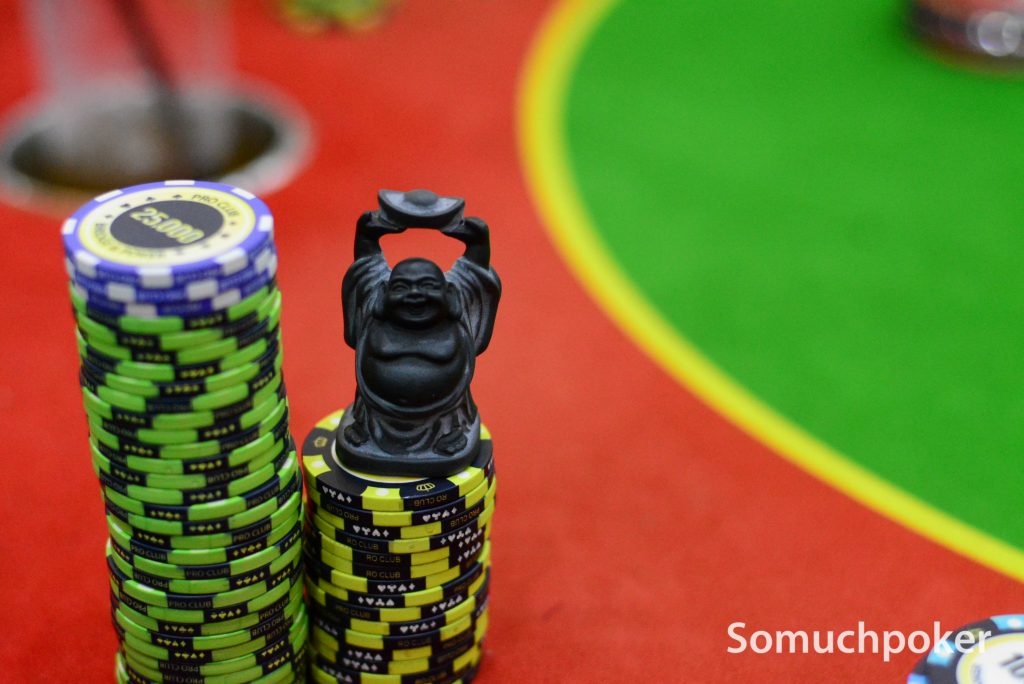Everything you should know before making a deal in a tournament
Over the years, deal making has become an increasingly popular and important factor in tournaments. It allows players to flatten the payouts in the late stages which decreases the variance which can make tournament grinding difficult to manage as a profession.
Most live events are happy to facilitate deals between players, and certain online poker rooms will too.
How does deal making work?

In an online scenario, players will either ask about a deal in chat or select a box which declares that they are open to a deal. If all players tick that box, the tournament will be paused so a deal can be discussed. In a live tournament, the possibility of a deal will be raised verbally, and if all players agree to at least discuss it, play will be paused.
It is important to remember that no player is ever obliged to agree to a deal. You can refuse any deal at any time up to the point where it is officially confirmed as agreed. If you agree to look at the numbers and discuss a deal, this does not mean you are agreeing to the deal itself. You can walk away at any time and this will resume the tournament. If players agree to discussions, a tournament director or member of staff will then ask what form of numbers players want to see.
Usually this will be ICM or Chip Chop, but sometimes players will simply agree to an equal split. The proposed numbers will then be given to players, who can then request more if they wish or agree to the numbers and negotiations will then take place.
If all players agree to dividing the prize money in a certain way, they will inform the member of staff that they are in agreement, then the tournament will end with the prizes paid out as agreed.
What are the key differences between deal types?
The two main forms of deal are ICM and Chip Chop. The more popular form is ICM because it is the fairest way to distribute the prize money.
ICM differs from Chip Chop in that it factors in the likelihood of each player finishing in certain positions and weights the payouts accordingly.
This is more complicated but also more accurate and avoids farcical situations in Chip Chop calculations where a chipleader may be designated a portion of the prize pool which is better than 1st place money.
The reason these anomalies arise with Chip Chop calculations is that chip counts are the basis for the calculations and the prize pool is divided up purely based on that.
This means if a player has 70% of the chips in play three-handed and 1st place pays out 50% of the remaining prize pool, the chipleader can get more than 1st place money. Chip Chops always favour players with bigger stacks.
Many people have caught up with deal making strategy to some degree now and they will know that Chip Chops aren’t a fair split. In this instance, you can try to get them to agree to a “Save” if you are the shorter stack. This involves each player taking an equal amount out of the prize pool but leaving a chunk of money to play for.
Where can you gain or lose an edge in deal making?

As mentioned above, suggesting a Chip Chop when you are the biggest stack and making sure you always refuse Chip Chop if you’re not – is crucial.
The Save option for splitting also gains you a solid edge if you are the shorter stack. ICM chops offer fairness mathematically speaking, but if your opponent really wants a deal it is normally because they think you may have an advantage going forward. This could be because they don’t have much experience playing short-handed or because the money is too big for them and they are nervous about the sums involved.
The very fact they suggest a deal should therefore make you inclined not to accept.
You can of course, always look at the numbers then ask for an extra 5% or 10% on top to balance this out, but the point about deals is – they’re entirely up to you.
Here is a breakdown of deal types to help you understand the key differences.
Chip Chop
- You are four-handed in a tournament which pays $100,000 for 1st
- $50,000 is paid to 2nd, $30,000 to 3rd and $20,000 to 4th.
- There are 1 million chips in play
- Chip Chop assigns an equal value to all chips based on the total prize pool ($200,000)
- $200,000 divided by 1,000,000 is $0.20 which is the value of each chip
- Your monetary reward is then calculated purely based on your chip count
- Player 1 – 600,000 chips, player 2 – 250,000, player 3 – 100,000 and player 4 – 50,000
- The chip leader would receive 600,000 multiplied by $0.20 which equals $120,000
- The short stack would receive 50,000 multiplied by $0.20 which equals $10,000
- The chipleader then walks away laughing with $20,000 above 1st place money
ICM (*percentages only shown to 2 decimal places)
- There are many ICM calculator tools online and it is difficult to calculate in your head
- The exact same scenario discussed above would be calculated as follows
- Player 1 – 600,000 chips gets 38.92% of the prize pool while player 2 gets 27.53%
- Player 3 gets 18.92%, player 4 gets 14.62% which translates as follows
- Player 1 – $77,840, player 2 – $55,060, player 3 – $37,840, player 4 – $29,240
The Save
- You are heads-up in a tournament which pays $100,000 to 1st and $60,000 to 2nd
- You have 20% of the chips in play to your opponent’s 80%
- You are guaranteed at least $60,000 each so you are playing for $40,000
- Your opponent currently has 80% of $40,000 ($32,000) and you have 20% ($8,000)
- When added to the $60,000 already guaranteed you have $68,000
- You get your opponent to agree to put $70,000 aside each and play for $20,000
- You now have $70,000 plus 20% of $20,000 which equals $74,000.
- You just gained $6,000 for free
How does bankroll management affect deal making?
It is common knowledge that bankroll management factors arise when players are choosing what buy in to pay for a tournament, or whether to rebuy. What most people don’t consider is how bankroll management relates to the late stages of a tournament and deal making. You may decide that paying $100 to play a tournament is just about within the reaches of your bankroll. But later, when you are short-handed and playing for tens of thousands of dollars after a very deep run, you need to start thinking about your bankroll again.
In these final table instances, refusing a deal is essentially agreeing to put a huge portion of your bankroll at risk. Most players will think “well even if I bust out on the next hand, I’m going to double my bankroll so why do I need to worry about being careful?” The point is, bankroll management principles remain just as important regardless of a deep tournament run.

Your bankroll may be $20,000 and 3rd place might be the next payout at $40,000, with $75,000 for 2nd and $125,000 for 1st. You can consider your bankroll as $60,000 now because you’re guaranteed at least $40,000, but with equal chip stacks you have $80,000 in equity and an ICM deal would guarantee you $80,000 instead of $40,000.
When you think about it, does the fact your bankroll has just gone from $20,000 to $60,000 mean you should gamble it up for the other $40,000 you have in equity? Good bankroll management suggests you should take any deal which is fair.
What negotiation techniques should you use?
The words you use while negotiating can be almost as important as what you are asking for when it comes to deal making. If you are rude or unpleasant during negotiations, or even while playing before negotiations begin, your opponents will be less inclined to give you what you ask for. Try to be polite and positive and use inclusive words like “we” rather than just “I”. Also, be firm and clear about what you want. If you phrase statements as “I don’t mean to complicate things and I know it seems a lot, but I’d like this amount” – you are very unlikely to get what you want.
Don’t act ashamed of the amount you’re asking for. Be clear about it, try not to give any ground in terms of the numbers but be friendly and positive in how you engage in the negotiations.
Try to also avoid anything which is boastful in nature like “I’ve played for these amounts plenty of times and I have an 80% ROI at these tournaments”. Players may be less likely to give you what you want if you base your number on words like this because you’re basically saying you are better than them.
It may be true, but opponents may feel too proud to accept a deal which involves agreeing with your summary of skill levels and admitting that.
Article by Craig Bradshaw




